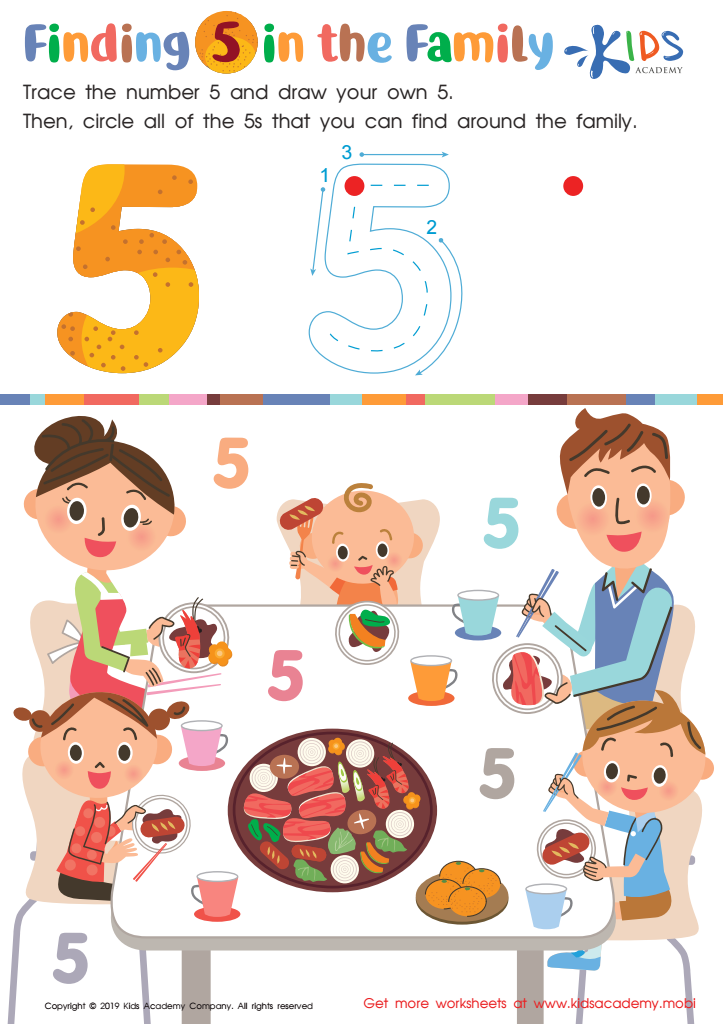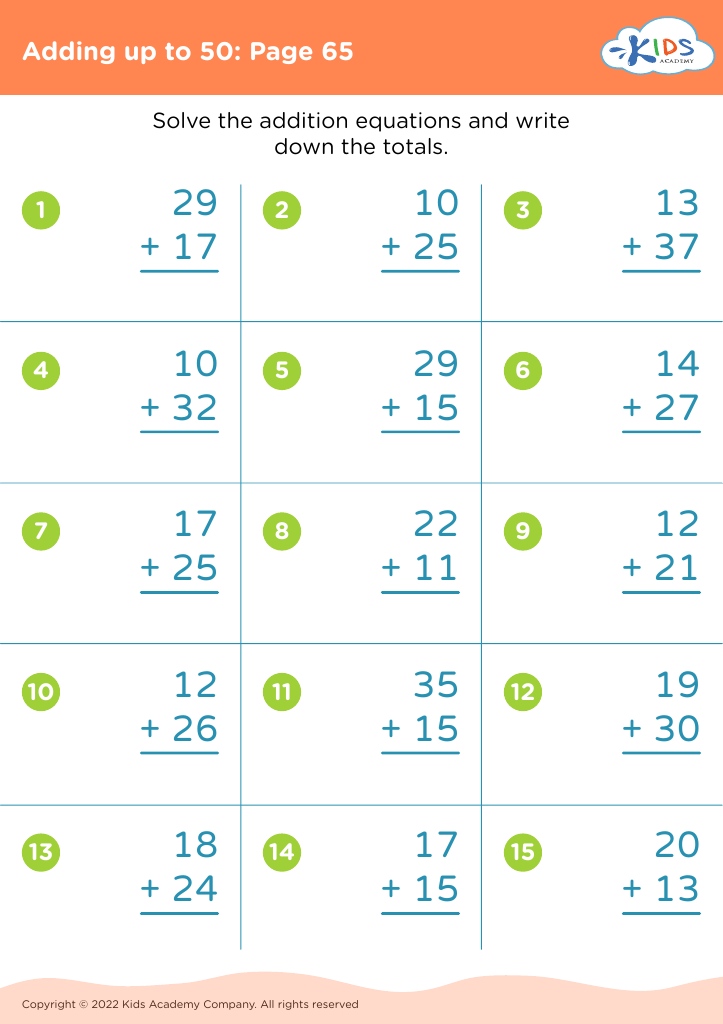Learning subtraction Worksheets for Ages 6-8
4 filtered results
-
From - To
Our "Learning Subtraction Worksheets for Ages 6-8" are designed to make mastering subtraction fun and engaging for young minds. These printable worksheets provide a variety of interactive subtraction exercises tailored for early grade students. Through colorful visuals and age-appropriate problems, children build essential math skills while boosting their confidence and accuracy. Perfect for classroom or at-home practice, our worksheets help students grasp the fundamentals of subtraction in an enjoyable way. Get access to our expertly crafted resources and watch your child's math abilities flourish! Download now and turn learning subtraction into a delightful adventure.


Finding 5 in the Family Worksheet
Understanding subtraction for children aged 6-8 is vital because it forms a fundamental part of their numerical cognition and overall mathematical development. At this stage, children are building foundational skills that will underpin all future mathematical learning. Subtraction is not just about knowing how to "take away" numbers; it encompasses concepts of difference, comparison, and the idea of ‘less than’, which are critical for problem-solving in real-life situations.
For instance, teaching subtraction helps young learners develop logical thinking and enhances their ability to think critically about problems. They start to understand and analyze situations quantitatively, like determining how many apples are left after eating a few. Furthermore, subtraction’s reciprocal relationship with addition helps solidify their overall number sense. This understanding not only aids in arithmetic proficiency but also in grasping more advanced topics like algebra and geometry in later years.
For teachers and parents, supporting children in mastering subtraction can foster a sense of confidence and a positive attitude towards mathematics. Engaging learning activities and reinforcing these skills through daily practice enables children to become proficient in basic arithmetic, laying the groundwork for academic success across various subjects. Thus, prioritizing subtraction for young learners equips them with essential skills they'll use throughout their educational journey and beyond.


 Assign to the classroom
Assign to the classroom














